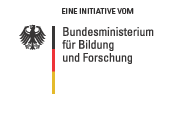Yuri Gleba: Using plants as molecule factories
-
 <ic:message key='Bild vergrößern' />
<ic:message key='Bild vergrößern' />
- After a career as a plant physiologist and geneticist, Yuri Gleba is now an entrepreneur with three company foundings behind him. Quelle: Private
10.12.2014 -
Chess is a popular sport in his homeland. As a native of Ukraine, Yuri Gleba feels a connection with the game of kings. His motto: “Entrepreneurs should be able to think like a Grand Master.” Today, the businessman with a doctorate in plant physiology and genetics has proven this motto with his companies Nomad Biosciences and Icon Genetics. The business world is where the 65-year-old feels at home: “Science, politics, your competitors – you have to consider aspects from highly different areas. That’s exactly my thing.” His Halle-based company Icon Genetics was in the headlines this summer because of a method developed by the plant technologists that enables improved production of the ZMapp Ebola serum. The technique involves turning tobacco plants into antibody factories.
It wasn’t always clear that there was a born entrepreneur hiding inside the scientist Gleba, let alone that he would play a central role in the fight against the Ebola pandemic currently spreading in West Africa. The plant physiologist began his career in the Soviet Union. After the fall of the Iron Curtain, he spent almost a decade in the United States. “There, in a company research department, I learned that large companies are not the best places for innovation to flourish” is Gleba’s conclusion today.
From start-up to successful biotech company
As a consequence, the almost 50-year-old began a venture career, and in 1999 founded Icon Genetics in Princeton in the US. This start-up developed tailor-made viral or bacterial expression systems for protein production in plants. The major advantage of this approach is that as soon as one month later, the desired proteins can be isolated from the leaves in large quantities, regardless of whether they are low-cost proteins, industrial enzymes and biomaterials, or high-value biopharmaceuticals. In its very first year, Icon moved to Europe. “One of the reasons for the move was that, from a cultural perspective, we saw the US as a desert,” remembers the opera fan. The three-person family opted for Germany, where they already had personal contacts. “We were extremely lucky,” recalls Gleba, “because the German government was just beginning a huge financing program.” Funding was also available from the federal states, and so the company was divided into a public company in Munich and a limited liability company in Halle an der Saale. “I believe that we only survived the looming collapse of the biotech scene because of this comfortable funding situation.” The success of the company resulted in an acquisition in 2006 by the pharmaceutical corporation Bayer, who were looking to use Icon’s technology to create their own cancer vaccines. Gleba was persuaded to stay on board: “But at some point I was unhappy pursuing just a single product. If it failed, the technology as a whole would fall into disrepute.”
More on this subject on biotechnologie.de |
News: Green antibody factories take the fight to cancer and Ebola |
Icon technology Vs. Ebola
The solution: From 2008, Gleba worked half days at Bayer and the other half at his newly-founded company Nomad Bioscience, which was this time limited to non-pharmaceutical projects. In 2012, Bayer exited the field of cancer vaccines following a change in strategy and the chess enthusiast Gleba was required again as a company strategist. His move: Nomad would acquire Icon. In contrast to the early days at Icon, Gleba dispensed entirely with venture capital in the management buyout. The parent company Nomad was subsequently owned by just four people, with Gleba controlling 90 percent. “This was a reflection of my frustration with venture capital. With the contract research, now we have full control of our financing.” Here, the company can benefit from the diverse nature of their clients, which span pharmaceutical development, agricultural industry and well beyond. “Our 33 employees are always switching between projects. We’ve never had to let anybody go for operational reasons,” says Gleba. There is another reason for a sense of pride at the company: The drug ZMapp, which is used to combat the Ebola virus, is based on inventions that originated in Halle (more ...). Gleba is also involved in negotiations with the US Department of Defense. The production of the drug cocktail – using Icon technology – is undertaken by US-based companies. Gleba has mixed feelings about this: “As nice as it is to see the fruits of our work begin to ripen, it’s also a little frustrating that it’s not happening in Germany.”
Author: Martin Laqua



